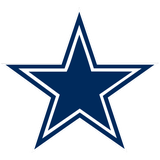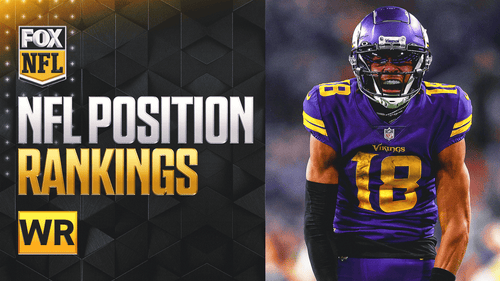
Cowboys set for move to new facility in Frisco
FRISCO, Texas (AP) -- Charlotte Jones Anderson wants to save a few special details for her father to see when Dallas owner Jerry Jones moves into the team's new headquarters this summer.
None of those surprises will involve money, though.
The billionaire boss of the Cowboys knows full well how much he's spending to forge a unique relationship with Texas high school football, part of a sprawling complex centered around a 12,000-seat indoor stadium and eventually including a hotel, sports medicine facility, restaurants and maybe even something the Jones family hasn't thought of yet.
Once the idea took hold in Frisco, a sports-centric suburb 30 miles north of Dallas, Jones grew comfortable with the idea of spending more on The Star -- world headquarters of America's Team -- than he personally did on his $1.2 billion stadium in Arlington less than a decade ago.
"I will say there is not a dollar spent that he doesn't know about," said Jones Anderson, chief marketing and brand officer. "As the vision grew, so did the checkbook."
At the moment, Jones puts his bill around $800 million, just shy of his share of the showplace with the giant video board hanging over the home field of the Cowboys.
The new outdoor practice fields will be a right turn out of a football-shaped locker room adjacent to the stadium. But when quarterback Tony Romo and company come home from training camp in California in August, the Texas heat will likely mean several weeks of left turns to the indoor field -- the same one that Frisco high schools will use on game nights in the district's third stadium.
"This just totally has blown me away in terms of what we can do, the visibility, the tying it in the football, then regular athletics," Jones said. "This area will be a template and an example far beyond Frisco, all over the country, of an example of Romo walking off on Thursday, Friday practicing and then high school quarterbacks coming in to play football, side by side, talking to each other about the game tonight. I can see that."
Jones acknowledged a case of "stadium fatigue" financially coming off the massive project in Arlington, about 35 miles to the southwest. But the Cowboys knew they were getting closer to replacing their aging Valley Ranch complex, which had its indoor field destroyed in a storm in 2009. The last practice at the 31-year-old facility in Irving was the final day of minicamp Thursday.
The deal with Frisco came together quickly three years ago, with the city's total capped at $90 million on the stadium and a parking garage. The school district agreed to contribute $30 million. The original plan didn't call for any money from the Cowboys up front, only for them to handle remaining costs and assume responsibility for developing most of the 90-acre site.
Ron Patterson, Frisco's assistant city manager, says the current cost of the city-owned stadium and garage is around $260 million. Jones estimates that the club ultimately will spend more than $1.5 billion on the site. There has been little known opposition in an area that has gained national attention over costs of high school stadiums.
"You could almost say that Jerry Jones has been writing the city of Frisco checks," Mayor Maher Maso said. "We have a well-educated community. And they understand the finances of what the Cowboys can bring to the community. I think that's been borne out in a multitude of ways, that this is a return to the city."
The five-story headquarters building is on the south side of the practice fields. Fans will be able to see the fields from the main entrance or offices on the top three floors. Team executives and other personnel will be on the first two floors. That includes Jones having an office view of the fields, something he didn't have at Valley Ranch.
The team sold out 800 memberships for a private club that will also have a view of the practice fields, and will be open as many as 18 hours a day with the idea of members eating, working and socializing there.
"You don't see that around the NFL cities around the country," Maso said. "They're fairly independent, fairly private for their practice and their corporate home. What the Jones family has done here is the exact opposite of that. They've opened it up and said to us, let's sit down and figure out some new things we can do."
The financial return for Jones figures to be similar to what he pioneered not long after buying the Cowboys when he fought for the right to break from the NFL's sponsorship deals in order for money to flow directly to the team.
"I think what you're really trying to see team owners do throughout sports is leverage their brands in a way to generate non-shared revenue," said David Carter, executive director of the University of Southern California's Sports Business Institute. "I think it's about building brand and about generating incremental revenue."
And Carter sees Texas high school football as a brand as well.
"Marry that with arguably one of the biggest sports brands in the world and do it in that kind of a complex, which will have so much offer all the visitors ... it's very consistent," Carter said.
The team's rehab facilities will include a pool with an underwater view for athletic trainers, and one of the state's largest hospital networks just announced plans for a facility on site that will specialize in sports medicine.
Jones Anderson said "A-plus" real estate in a high-growth area was one of the catalysts for the family's latest spending spree.
Rather than bleachers, the Cowboys wanted chair-back seats likes those at AT&T Stadium, and a video ribbon that is a staple in most pro arenas. The plaza leading to the main stadium entrance will have a shorter turf field where youth can play under bright lights and video boards.
"It's one of a kind and quite possibly irreplicable," Jones Anderson said. "It's actually not smart business to be in the high-rent district if you're running a football team, unless you can build a community around it. And that's what we've done."
Only after Jerry Jones grew comfortable with another billion-dollar spree.










